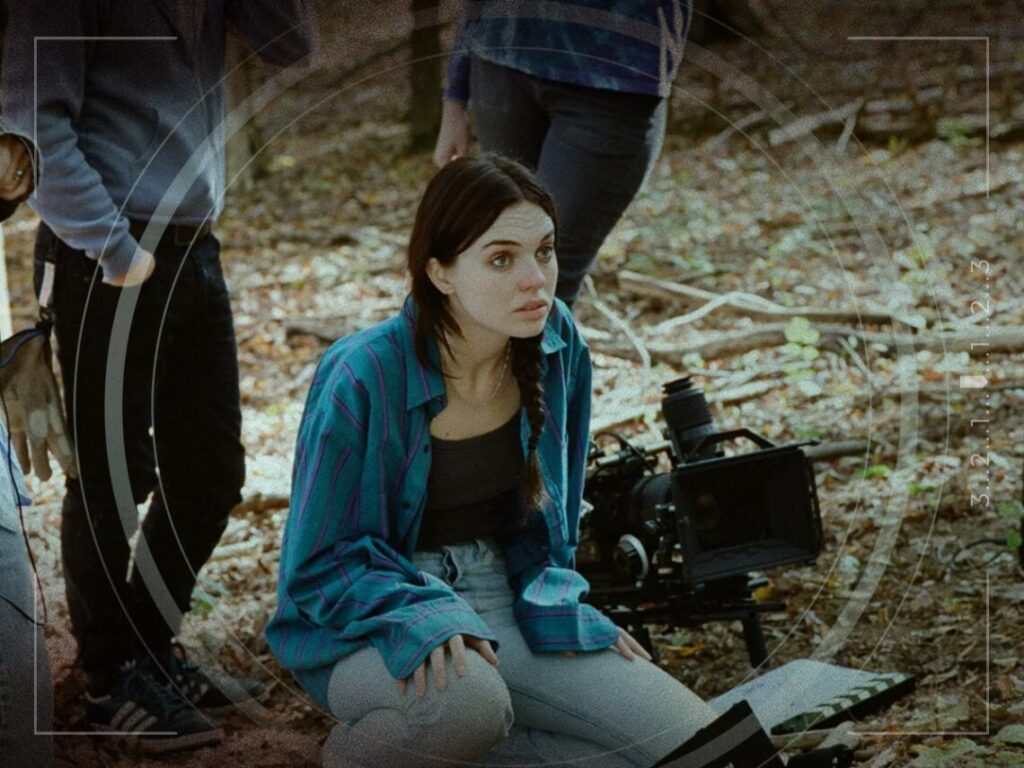‘My First Film’: the cycle of creative failure and rebirth
 Posted On
Posted On
(Credits: Far Out / MUBI)
When revisiting their early work, many artists are met with a wave of embarrassment and shame, starkly reminded of creative endeavours that once filled them with pride and now leave them with the resounding sting of failure. You cringe at your unwavering confidence as a formerly unjaded artist unfamiliar with the bitter pangs of rejection, convinced by the ingenuity of your ideas and finding enjoyment in sharing your art with other people. A self-assured life, untainted by the harsh reality of a creative industry that you learn doesn’t care for your ideas.
As you grow older and continue your practice, you become familiar with the process of creating and letting go, with ideas coming and going. You learn that not every thought is worth entertaining or putting onto paper, also becoming well-versed in your own inadequacies and the sobering knowledge that, perhaps, you aren’t quite as good as you once thought you were.
Any (sane) artist has undoubtedly been through the brutal ebb and flow of fluctuating confidence, moving between days in which you firmly believe you’ll find your audience and ‘make it’, which are inevitably watered-down by the ever-increasing times in which you consider quitting and think of yourself as not having a single drop of talent.
This is something that feels particularly pertinent within the world of filmmaking, with many directors going through brutal cycles of public mockery and flagellation after making a film that is received less kindly. They are subjected to torturous periods of speculation about their credibility as an artist and the validity of any future ideas. As a result, it can be hard to find the strength to look back on your past work, with old projects forming painful memories that once reinvigorated your creative spirit and now only drain you of your self-esteem. You feel scared to look when confronted with your dwindling talent and the gut-wrenching idea that maybe your work simply isn’t that good.
It’s a timeless plight that has rarely been explored through the medium itself, with emerging director Zia Anger capturing the tender battle between creativity and failure in her complex feature debut film, My First Film.
My First Film follows a young filmmaker called Vita as she revisits the chaotic shoot of her first feature film 15 years prior, with the production spiralling into disarray and an almost fatal accident. In many ways, it is a disorienting and jarring watch, with Anger cutting between mixed media sources and different time frames for a jagged and thought-provoking piece about the cycle of creativity itself, intercut with her real-life experiences of motherhood and abortion as an additional lens into the deeper meaning of this process.
Vita’s first shoot was littered with dramas and disruptions, whether it be the aggressive presence of her then-boyfriend who accidentally-on-purpose impregnated her—an added edge of anxiety to an already stressful experience—or scrapping crew members and inexperienced actors. The production is incohesive and plagued with problems, resulting in snappy remarks and tearful arguments as each person struggles through the shoot to complete Vita’s dwindling vision. Most importantly, it leads her to reflect on her work and the nature of making itself.
As artists, we often judge ourselves against our worst work, either avoiding it completely or obsessively combing through it to find the source of our failure, the moment where it all went wrong. For Anger, the film is marked with a voiceover of her reflecting on the shoot while examining the footage many years later, with a weary glint in her eyes and a note of solemnity as she gazes upon a more optimistic version of herself. However, Anger likens the process of creating to the act of birth and rebirth and motherhood, an idea that is made more poignant through her experiences of abortion and pregnancy and the sobering narration that adds a double meaning to the images onscreen.
Her self-reflexive mode of filmmaking helps create an introspective space to both forgive herself for her past creative failures and reframe this experience as being essential to the process of creation. We create and hope to god that it will be good, often making work that leads to dead ends, heartbreak, failure and rejection. We make work that is seen by no one and work that is seen by more people than we would like. Ultimately, the inevitable periods of failing and floundering as an artist are integral to the life cycle of making, being bold enough to put something out there but brave enough to welcome the uncomfortable reckoning to follow. But what is more important than the self-flagellation, crushing scrutiny, and doubt is the act of making and how, ultimately, it is the purest distillation of life itself.
We often see each project as possessing an element of finality—the ultimate reflection of our creative capacity and self-worth. But Anger paints this in a new light, showing the failures of her first film as the beginning of one long cycle of reinvention and journey towards discovery. She finds herself and her voice through the struggle, chaos, embarrassment, shame, pain and heartbreak of her first film.
Moreover, she realises how the act of bringing people together, united in the shared effort of making something, lit by the brief possibilities of an idea and exhilarated by the risk, will always be worth it. Regardless of the outcome, it’s another idea that is given life through your artistry, and you will continue the same process of rebirth with the next one.
[embedded content]
Related Topics


